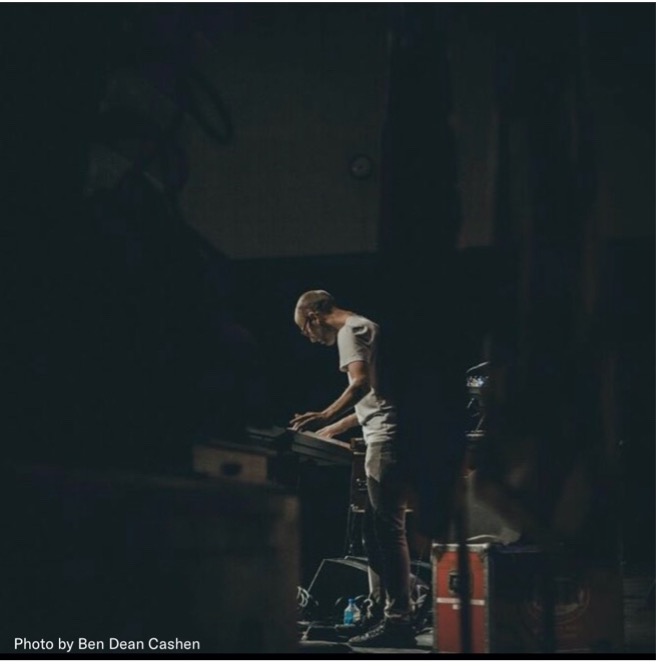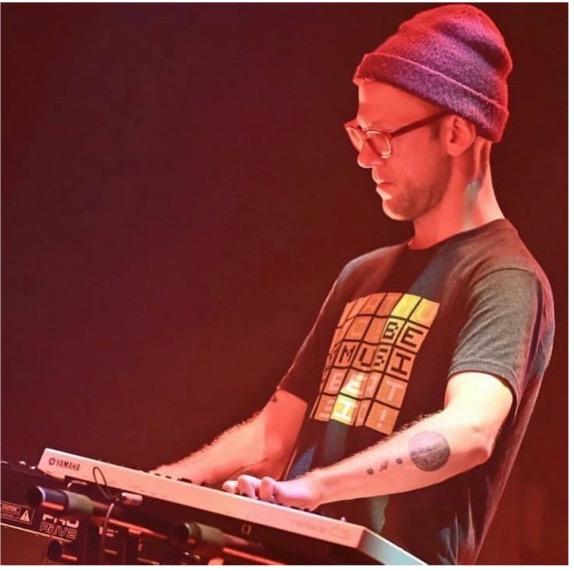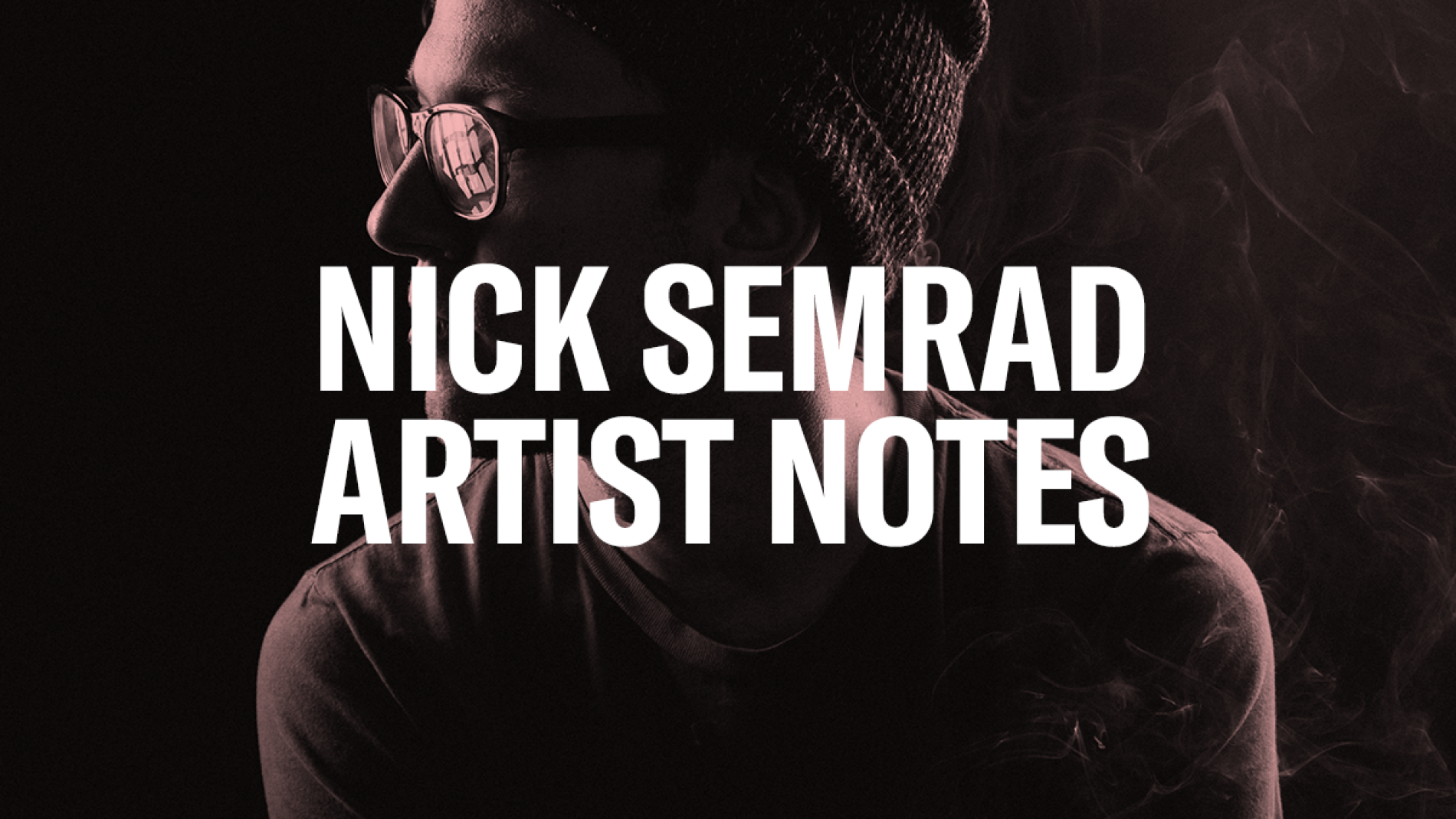The Act of Comparison
In the digital age, artists and creatives alike have been forced to deal with immensely heightened mental health struggles. One of the many reasons for this is that the music industry has become overly reliant on things such as digital content, awareness of this content, and an artist’s ability to be hyper visible online. The sheer volume of this content has led to an unhealthy amount of artistic and career-based comparison. I, myself, have spent large amounts of time comparing my talents and achievements to those of other artists that I see online. And while I have personally experienced this struggle, I have also found a few ways to overcome the negatives associated with these comparisons.
I’ve had the chance over the last few years to focus heavily on the idea of mental health. It’s been a bit of a wide-ranging study for me that has involved not only lots of self-examination for the sake of my own survival and stability, but also lots of reading, interviews, and questions due to my own curiosity. I’ve not been shy in publicly discussing my own travels through therapy, guided meditation, fitness, dieting, and plenty of other self-care experiments. In addition to all of this, I’ve also spoken to many other musicians about their own pathways through the mental rigors of having a career in music.
 There seem to be a few common themes that run through these conversations, and one of them is that many of us struggle with, or maybe struggle due to, comparing ourselves to other musicians. Human history has been always been full of in-group comparisons and the attached positives and negatives, but these comparisons have become greatly magnified in the modern Information Age and with the advent of social media. Artists have always struggled with gauging self-worth via their peers’ accomplishments. But now, it’s almost cliche to highlight how aware we’ve become of only the most impressive accomplishments and talents of those even remotely close to our scene. And not only are we made aware of these accomplishments and talents, but we’ve also been trained to stay as aware as possible due to synthetic dopamine reward systems such as likes and followers. Since entire business models are now based around these things, this can make the comparisons extremely difficult to ignore due to both the sheer magnitude of their presence and to the possible financial consequences of ignoring them.
There seem to be a few common themes that run through these conversations, and one of them is that many of us struggle with, or maybe struggle due to, comparing ourselves to other musicians. Human history has been always been full of in-group comparisons and the attached positives and negatives, but these comparisons have become greatly magnified in the modern Information Age and with the advent of social media. Artists have always struggled with gauging self-worth via their peers’ accomplishments. But now, it’s almost cliche to highlight how aware we’ve become of only the most impressive accomplishments and talents of those even remotely close to our scene. And not only are we made aware of these accomplishments and talents, but we’ve also been trained to stay as aware as possible due to synthetic dopamine reward systems such as likes and followers. Since entire business models are now based around these things, this can make the comparisons extremely difficult to ignore due to both the sheer magnitude of their presence and to the possible financial consequences of ignoring them.
I’d like to share a few of the ways that have personally helped me deal with these comparisons. Not only can they sometimes be rendered moot through a bit of examination, but they can possibly also be reframed as to be useful, while still containing self-love, if we can avoid all of the un-loving/self-hating traps that lie within.
One beneficial idea, which I learned through many hours of cognitive behavioral therapy, is the idea that there can never be a truly equal comparison because there are never truly equal players of which to compare; we are all apples and oranges, so to speak. For every player, there are thousands of possible variables that affected the way that player plays.
I was forced to confront this idea deeply in a few of my own musical projects. A number of the groups I play and tour with contain multiple keyboard players, and so comparisons are made by fans all the time. I often struggled after seeing comments and hearing people discuss who was the ‘best’ keyboard player in these groups, and, at certain times, I begin to unhealthily look at shows as competitions rather than musical and artistic cooperative experiences. It also made me focus on what the other players could do that I couldn’t, rather than looking at the positives of my own contributions to the music.
 After falling into a deep mental rut due to all this, I was forced to confront the idea that none of these comparisons were actually valid or useful; everyone that I play with was coming from extremely different backgrounds and styles than I was. The metaphor that my therapist used was that “not everyone at the table was playing with the same hand”. I feel like a more valid statement is that “not everyone at the table is playing the same game”. If I grew up in a small town in Nebraska listening to Radiohead and Medeski, Martin & Wood and the other player grew up in Brooklyn or Los Angeles listening to Keith Jarrett and Herbie Hancock, can we really make a useful comparison of our skill sets? To a certain extent, this seems as valid as asking whether or not Usain Bolt or LeBron James is a better athlete; though they are both athletes, it’s tough to compare them since one is a runner and one is a basketball player. I feel that musicians should be looked at in the same way.
After falling into a deep mental rut due to all this, I was forced to confront the idea that none of these comparisons were actually valid or useful; everyone that I play with was coming from extremely different backgrounds and styles than I was. The metaphor that my therapist used was that “not everyone at the table was playing with the same hand”. I feel like a more valid statement is that “not everyone at the table is playing the same game”. If I grew up in a small town in Nebraska listening to Radiohead and Medeski, Martin & Wood and the other player grew up in Brooklyn or Los Angeles listening to Keith Jarrett and Herbie Hancock, can we really make a useful comparison of our skill sets? To a certain extent, this seems as valid as asking whether or not Usain Bolt or LeBron James is a better athlete; though they are both athletes, it’s tough to compare them since one is a runner and one is a basketball player. I feel that musicians should be looked at in the same way.
Musical comparisons like these could be rendered even further invalid when one considers race/culture, sex/gender, wealth, location, parental stability/instability, country of origin, exposure to a healthy and supportive music scene, years of experience and exposure to the instrument you play, health, physical stature/biology, mental health, attractiveness, and so on and so on. All of these factors, and even the intersections within, give players enormous advantages or disadvantages in regard to both their careers and their abilities and lead to, essentially, always comparing apples to oranges.
Moreover, in regard to social media, artists and fans alike are often being fooled by appearances. The whole platform is built in a way that rewards smooth, edited content while making us feel like everything we hear came from one simple take. I’ve found that the videos I do in which I record the audio into a DAW, do some EQ editing and video color grading, film from overhead, and take the best take out of 3 or 4 are way more highly regarded, liked, and shared than the videos of me improvising at a show. Part of this is due to the user and their tastes and needs, and part is due to how the algorithms of the app push certain content forward. Interestingly enough, there’s no way that I could’ve faked or edited the content coming from the live show, yet the platform and its users tend not to reward this sort of honesty at all. For whatever reason, social media users often want flashy, easy to digest, compact content rather than honesty, mistakes, and rawness.
It’s important to understand that there are large groups of musicians who have tailored everything they do to being rewarded on these types of platforms. I’m not necessarily judging this, as certain constraints on the current market have made this one of only a few viable options for career growth, but it’s vital that we acknowledge that this happens.

These players prep the greatest sounding re-harms, fills, and licks in an effort to put out 60 seconds of absolute fire in order to hit the needs of both the user and the requirements of an algorithmic push. The not-so-obvious consequence of all of this is that it creates an artistic environment that,through a sort of smoke-and-mirrors effect, hints that the scene is full of incredibly good players whose content is un-curated and whose skill is easily obtained. If you’re a musician who isn’t privy to the behind the scenes work of this environment, it’s easy to imagine that you are drowning in a sea of perfect players who always play, and look, incredible. The reality is far less perfect, and musically intimidating, as we are led to believe.
All that being said, can we reframe the idea of comparisons to fine tune our search for new information and personal growth? Absolutely! I have learned to enjoy hearing all of my keyboard-playing bandmates’ playing and realizing that they have some skills that, while I can’t yet play them fluently, I would love to obtain. Some have much more bebop specific language than I do currently, some know more interesting re-harmonization tricks, and some are able to touch on deep levels of emotion in ways that I hope to eventually obtain. If I were searching for people to transcribe and learn from, I’d obviously want to find people who had information that I didn’t, and I’m lucky to be surrounded by these sorts of people in my own music groups. Notice that I’m still doing a sort of comparison, but now it is rooted in my own growth and self-interests instead of deep levels of judgment and negativity. Previously, I’d get down on myself for not having something and I’d enter the dark spiral of “should’s”; this would cause me to feel desperate and to cause my learning to come from a deeply painful place. However, now I’ve realized that we are all who we are for very specific reasons, and that I can learn from some of the things that other players have that I don’t. There’s no pain here, only opportunity. There is no ‘should be/shouldn’t be’, there is only what is and what can be.
I love y’all. Keep your head up, don’t forget to breathe, and try to only compare yourself to who you were yesterday.
Want to share your thoughts? Please join the conversation on the Forum here.

 There seem to be a few common themes that run through these conversations, and one of them is that many of us struggle with, or maybe struggle due to, comparing ourselves to other musicians. Human history has been always been full of in-group comparisons and the attached positives and negatives, but these comparisons have become greatly magnified in the modern Information Age and with the advent of social media. Artists have always struggled with gauging self-worth via their peers’ accomplishments. But now, it’s almost cliche to highlight how aware we’ve become of only the most impressive accomplishments and talents of those even remotely close to our scene. And not only are we made aware of these accomplishments and talents, but we’ve also been trained to stay as aware as possible due to synthetic dopamine reward systems such as likes and followers. Since entire business models are now based around these things, this can make the comparisons extremely difficult to ignore due to both the sheer magnitude of their presence and to the possible financial consequences of ignoring them.
There seem to be a few common themes that run through these conversations, and one of them is that many of us struggle with, or maybe struggle due to, comparing ourselves to other musicians. Human history has been always been full of in-group comparisons and the attached positives and negatives, but these comparisons have become greatly magnified in the modern Information Age and with the advent of social media. Artists have always struggled with gauging self-worth via their peers’ accomplishments. But now, it’s almost cliche to highlight how aware we’ve become of only the most impressive accomplishments and talents of those even remotely close to our scene. And not only are we made aware of these accomplishments and talents, but we’ve also been trained to stay as aware as possible due to synthetic dopamine reward systems such as likes and followers. Since entire business models are now based around these things, this can make the comparisons extremely difficult to ignore due to both the sheer magnitude of their presence and to the possible financial consequences of ignoring them. After falling into a deep mental rut due to all this, I was forced to confront the idea that none of these comparisons were actually valid or useful; everyone that I play with was coming from extremely different backgrounds and styles than I was. The metaphor that my therapist used was that “not everyone at the table was playing with the same hand”. I feel like a more valid statement is that “not everyone at the table is playing the same game”. If I grew up in a small town in Nebraska listening to Radiohead and Medeski, Martin & Wood and the other player grew up in Brooklyn or Los Angeles listening to Keith Jarrett and Herbie Hancock, can we really make a useful comparison of our skill sets? To a certain extent, this seems as valid as asking whether or not Usain Bolt or LeBron James is a better athlete; though they are both athletes, it’s tough to compare them since one is a runner and one is a basketball player. I feel that musicians should be looked at in the same way.
After falling into a deep mental rut due to all this, I was forced to confront the idea that none of these comparisons were actually valid or useful; everyone that I play with was coming from extremely different backgrounds and styles than I was. The metaphor that my therapist used was that “not everyone at the table was playing with the same hand”. I feel like a more valid statement is that “not everyone at the table is playing the same game”. If I grew up in a small town in Nebraska listening to Radiohead and Medeski, Martin & Wood and the other player grew up in Brooklyn or Los Angeles listening to Keith Jarrett and Herbie Hancock, can we really make a useful comparison of our skill sets? To a certain extent, this seems as valid as asking whether or not Usain Bolt or LeBron James is a better athlete; though they are both athletes, it’s tough to compare them since one is a runner and one is a basketball player. I feel that musicians should be looked at in the same way.